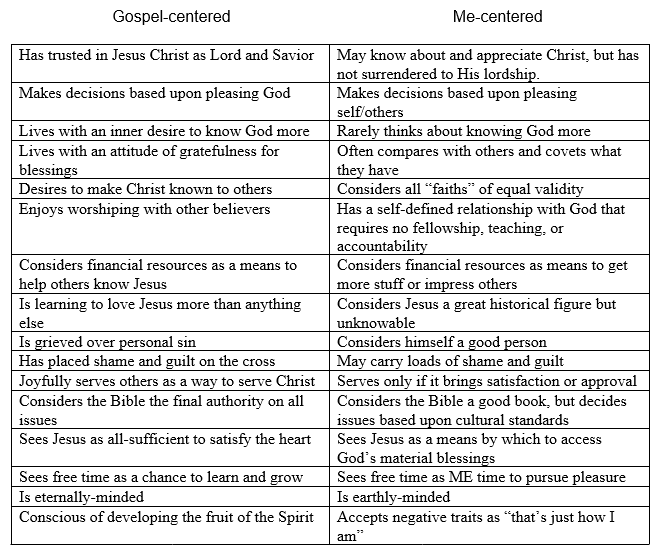- Joined
- Sep 30, 2008
- Messages
- 4,855
- Points
- 113
What does the Bible say about being a godly woman?
AnswerThe Bible has a great deal to say about godliness for both men and women. Most references to godliness do not differentiate between the attributes of a godly man and a godly woman. Both men and women, if they belong to Christ by faith, have exhibited a godly sorrow that “produces repentance leading to salvation” (2 Corinthians 7:10). Without the gift of salvation by grace through faith, no man or woman can be truly godly. The word godly in the Bible means “pious” or “holy.” But piety and holiness are only achieved when we are made new creations in Christ (2 Corinthians 5:17). Born-again Christians are indwelled by the Holy Spirit who produces godliness in us as He sanctifies us and molds us into the image of Christ. By His grace we are able to “live self-controlled, upright and godly lives in this present age” (Titus 2:12).
Godliness manifests itself in our lives when we are in control of our appetites and desires. We live in a worldly culture and must resist ungodly influences around us. One way a godly woman distinguishes herself from the world is by her self-control. She practices restraint and does not give free rein to uninhibited emotions, attitudes, words, and appetites.
The godly woman controls her thoughts, taking them captive and making them obedient to Christ (2 Corinthians 10:5). She controls her emotions and doesn’t allow them to control her. She controls her appetites and doesn’t display an unbridled passion for food and drink. She also controls her tongue, which James tells us is like “a fire, a world of evil among the parts of the body. It corrupts the whole person, sets the whole course of his life on fire, and is itself set on fire by hell” (James 3:6). The speech of a godly woman is one that edifies and encourages rather than tearing down with idle gossip. The godly woman also does not allow profanity and “unwholesome talk” to come out of her mouth (Ephesians 4:29).
Scripture says that a godly woman dresses modestly and adorns herself with “good deeds, appropriate for women who profess to worship God” (1 Timothy 2:9–10). Christian women should be able to see the vanity inherent in the allurements of a world “under the control of the evil one” (1 John 5:19). A godly woman is not fooled by the lies that try to convince her that attractiveness, personal worth, and fulfillment are found in physical, external beauty. The godly woman’s affections are fixed on Christ, her Savior, and she makes every effort to follow His example of good works. She has a heavenly focus, and she seeks to adorn herself with godliness, not worldliness.
Being a godly woman involves living in “purity and reverence” (1 Peter 3:2). The godly woman knows that her beauty does not come “from outward adornment, such as elaborate hairstyles and the wearing of gold jewelry or fine clothes” (verse 3). Rather, she focuses on her “inner self, the unfading beauty of a gentle and quiet spirit, which is of great worth in God’s sight. This is the way the holy women of the past who put their hope in God used to adorn themselves” (verses 4–5). Peter speaks of the relationship between a godly woman and her husband, referencing Sarah as an example to be emulated: “They submitted themselves to their own husbands, like Sarah, who obeyed Abraham and called him her lord. You are her daughters if you do what is right and do not give way to fear” (verses 5–6).
The godly woman trains herself to resist the world’s temptations as she practices piety. Like an athlete who uses repetition to become proficient in her sport, the godly woman continually fills her mind with the truths of Scripture. In addition, she appeals regularly to the Spirit to help her train her thoughts, attitudes, words, and desires to reflect those of her beloved Lord. “For bodily exercise profits a little, but godliness is profitable for all things, having promise of the life that now is and of that which is to come” (1 Timothy 4:8).
The godly woman has “sincere faith” like Eunice and Lois (2 Timothy 1:5). She is kind, like Ruth (Ruth 1:8). She lives righteously, as Elizabeth did (Luke 1:5–6). She is of “noble character” and seeks to follow the example set by the virtuous woman in Proverbs 31:10–31. She shows good judgment, generosity, and prudence as did Abigail (1 Samuel 25).
For Further Study
A Woman After God’s Own Heart, Updated and Expanded by Elizabeth GeorgeMore insights from your Bible study - Get Started with Logos Bible Software for Free!


